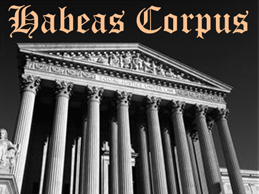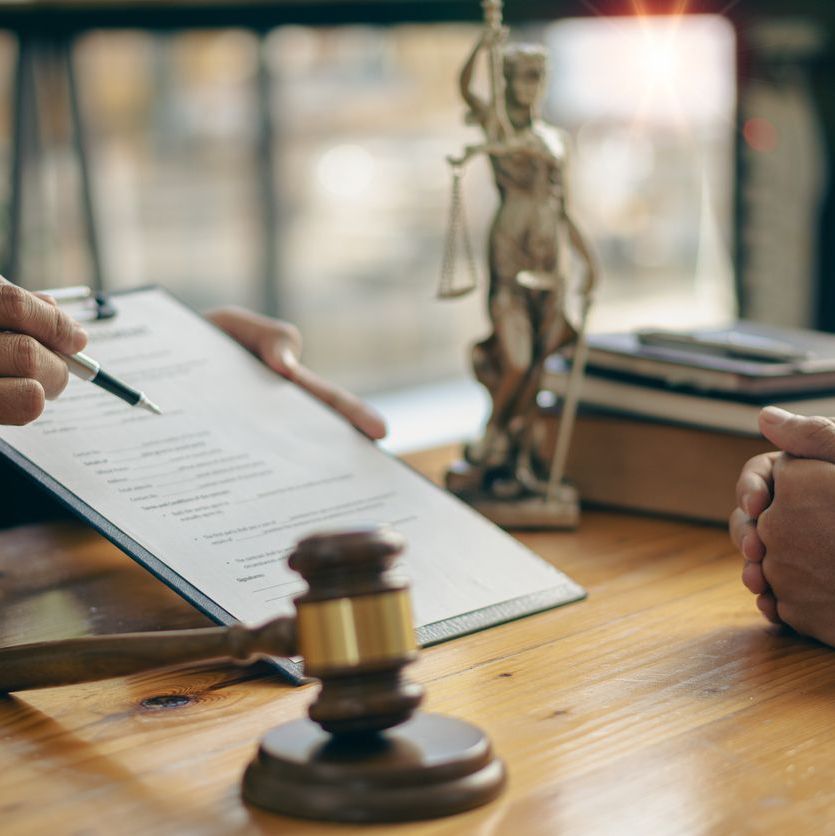Navigating Habeas Corpus with the Help of an Experienced Attorney
Navigating Habeas Corpus with the Help of an Experienced Attorney
Blog Article
Comprehending the Function of a Post-Conviction Legal Representative in Seeking Justice After a Criminal Sentence
In the facility landscape of post-conviction lawful process, the function of a post-conviction legal representative is pivotal in browsing the course to justice after a criminal sentence. Beyond the confines of a test, these attorneys involve in a diverse approach intended at discovering new evidence, challenging legal errors, and supporting for their customers' civil liberties. The details of post-conviction job require a mix of legal acumen, investigatory skills, and strategic thinking to unravel the intricacies of an instance and go after opportunities that may have been neglected or underexplored. As the search of justice extends beyond the boundaries of initial procedures, the role of a post-conviction lawyer arises as a sign of wish for those seeking to remedy injustices and redeem their legal rights within the legal system.
Post-Conviction Attorney's Investigative Work
Post-conviction legal representatives participate in precise investigatory job to uncover new evidence, step-by-step mistakes, or misconduct that can potentially lead to rescinding a sentence. This investigatory stage is important in the post-conviction process as it intends to identify any kind of neglected information or legal missteps that may have influenced the result of the first trial. Post-conviction lawyers explore situation documents, witness statements, and lawful documentation with a fine-tooth comb, looking for any kind of disparities or abnormalities that could be premises for allure.
With complete examination, post-conviction lawyers aim to drop light on possible oppressions that might have taken place during the original test. By looking at every aspect of the lawful proceedings, post-conviction attorneys work tirelessly to discover any kind of variables that may have affected the decision.
Crafting Appeals and Petitions
In the pursuit of justice after a conviction, proficient legal representatives carefully craft charms and requests to existing engaging arguments for the reconsideration of lawful choices. Crafting allures and requests requires a deep understanding of the lawful system, focus to information, and critical thinking. Post-conviction lawyers examine trial documents, recognize possible mistakes or offenses of legal rights, and create lawful debates to test the conviction or sentence.
When crafting an appeal, lawyers focus on highlighting legal mistakes that might have impacted the end result of the instance. They investigate case law, laws, and legal criteria to sustain their disagreements. Applications, on the various other hand, may include providing new evidence that was not readily available during the trial or showing changes in the law that require a review of the sentence.
Additionally, post-conviction attorneys must stick to stringent procedural regulations and due dates when filing charms and requests. They must provide their arguments plainly and persuasively to i was reading this persuade the court to provide alleviation to their clients. With meticulous crafting of allures and requests, post-conviction legal representatives aim to secure justice for people that have been wrongfully founded guilty or unfairly punished.

Pursuing Post-Conviction Alleviation
Post-conviction alleviation includes a range of lawful mechanisms made to test the validity of a sentence or sentence. Post-conviction attorneys play an essential duty in navigating these intricate procedures, ensuring that all lawful options are checked out to rectify oppressions that might have taken place during the test or sentencing phase.
One usual type of post-conviction alleviation is filing an application for post-conviction relief, normally based on claims of ineffective help of counsel, prosecutorial misbehavior, newly found proof, or constitutional violations. These requests call for an extensive evaluation of the trial document, lawful research, and influential campaigning for to convince the court to approve alleviation. Experienced post-conviction lawyers possess the abilities and understanding essential to identify practical lawful cases, conduct investigations, and existing engaging debates to secure relief for their clients. By faithfully pursuing post-conviction relief, these lawyers make every effort to deal with miscarriages of justice and support the principles of fairness and due process in the criminal justice system (Attorney).
Using Forensic Proof
When challenging a conviction or sentence, the strategic utilization of forensic evidence can be an effective device in post-conviction lawful procedures. Forensic evidence encompasses a vast array of clinical methods used to investigate crimes and develop realities in court. Post-conviction legal representatives can utilize forensic evidence to challenge the legitimacy of sentences by providing new clinical searchings for that were not available throughout the initial trial.

Engaging in Sentence Modifications
Post-conviction lawyers might discover the possibility of sentence alterations as a lawful opportunity to attend to disproportionate or unjust sentences handed down in criminal cases. Sentence modifications involve looking for adjustments to the terms of an accused's sentence after a conviction has actually happened. These adjustments can include reducing the size of a sentence, modifying the kind of penalty enforced, or checking out different sentencing choices.
Post-conviction legal representatives can pursue sentence alterations via different legal mechanisms, such as submitting activities for sentence reduction, appealing for compassionate launch, or bargaining plea deals for lowered sentences. They need to meticulously review the conditions of the situation, evaluate the lawful grounds for seeking an alteration, and present engaging disagreements to the court sustaining the requirement for a modified sentence.
Taking part in sentence modifications calls for a complete understanding of criminal law, punishing guidelines, and the details procedures entailed in seeking post-conviction alleviation. Post-conviction lawyers play a critical function in supporting for reasonable and just end results by challenging sentences that are unduly extreme or do not align with the concepts of justice.
Conclusion
Finally, the duty of a post-conviction attorney is critical in seeking justice after a criminal sentence. Via investigative job, crafting appeals and requests, seeking post-conviction relief, using forensic proof, and involving in sentence alterations, these lawyers play an important function in supporting for their customers and ensuring that their legal rights are promoted within the criminal justice system. Their dedication and know-how are essential in navigating the intricacies of post-conviction process and attaining a fair outcome for individuals dealing with criminal sentences.
Report this page